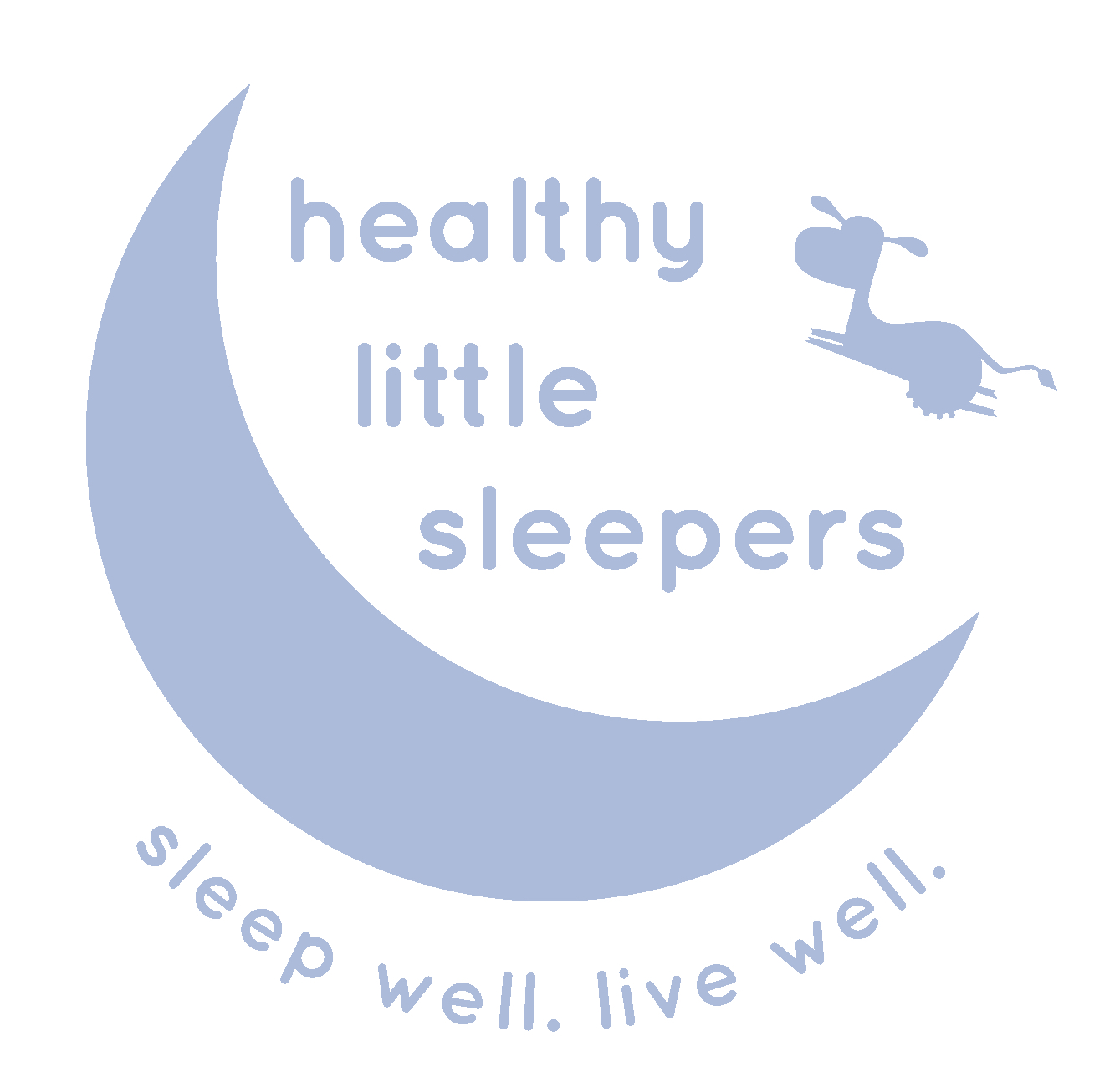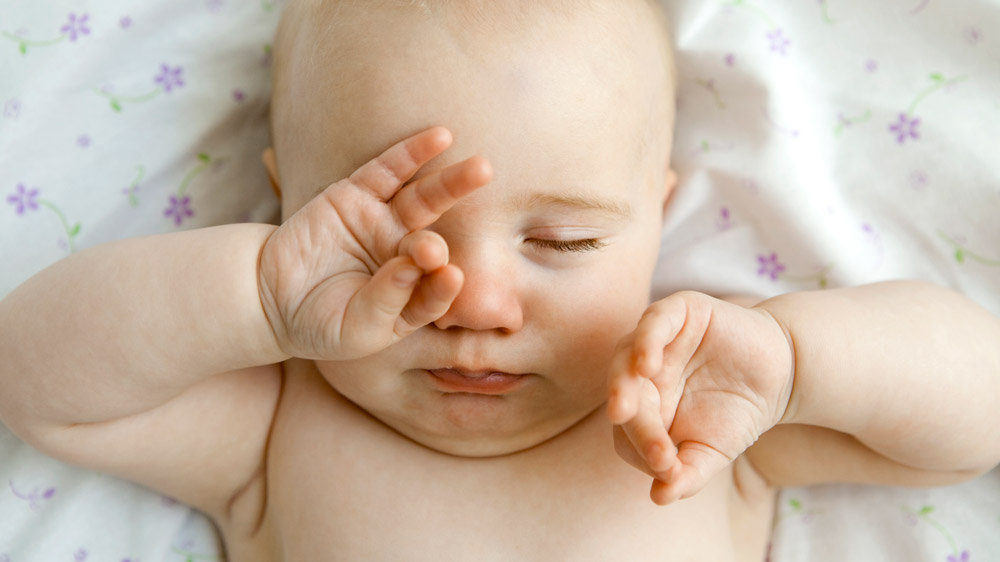Your Little's Melatonin Production
The Best Tricks Without Taking Anything Synthetic
I’m a science nerd to the core… and love learning. I’ve been brushing up on sleep and melatonin and wanted to share a breakdown of melatonin and how we actually produce it on our own.
Why?
Well, I often talk about melatonin production and your little one… like when you miss that sleepy window and all of a sudden your little one becomes wired and has a harder time going to sleep.
That’s when you can say sayonara to melatonin and hello cortisol (the stress hormone that makes you wired). So I’m breaking down what actually happens mores specifically with melatonin.
And better yet, this actually might give you some ideas for ways to increase or improve your own melatonin.
First things first…
* * *
What is Melatonin?
Melatonin is the naturally occurring sleep hormone that we produce from our pineal gland.
Our little ones actually don’t start producing it on their own till about 3mos of age — part of the reason you see day/night confusion in the first few months, asleep all day and up all night.
Side note: There are actually strong environmental and social cues that can aid this process happening quicker for your little one too! But we’ll save that for another time.
Back to what is melatonin. It’s is related to our sleep–wake cycles — like I mentioned, if you miss that prime time for sleep, melatonin is no longer around… and we become a bit more wired.
There is a predictable cycle of melatonin that follows our sleep-wake cycle. Levels of melatonin are highest in the evening hours and continue to increase throughout the night peaking between 2 and 4 am. Then they slowly start to drop off as the morning comes. No, this doesn’t mean go to bed at that hour… it just means that our sleep drive is strong at that hour.
So, what can you do aside from hitting the right timing of sleepiness to help with melatonin production?
* * *
Melatonin and Food.
Melatonin is derived from tryptophan. You know how the old saying goes at Thanksgiving… eating lots of turkey high in tryptophan makes you sleepy. Well, once in your digestive tract, tryptophan gets transformed into a vitamin b (niacin) then into serotonin which is sent to the base of our brain where the final conversion to melatonin happens in the pineal gland.
But there’s a catch with tryptophan.
Eating foods high in tryptophan doesn’t immediately impact serotonin/melatonin production.
There are other amino acids in food that tryptophan fights with to get transported to the brain. Tryptophan unfortunately gets bullied and pushed out of the way by the other amino acids. So you can’t just have some turkey and think it’s gonna help make you sleepy.
For tryptophan to work and actually be converted to melatonin, you need to eat complex carbs with it.
What happens is that these complex carbs signal to your body to release insulin which REMOVES the other amino acids from your blood, except tryptophan. Fancy that!
Now, tryptophan isn’t in competition with the other amino acids and can easily make it to the brain boosting serotonin levels. Which of course, now you know, paves the way for melatonin production.
It’s not just about the “turkey”.
Even having only a light carbohydrate snack before bedtime will react with stored tryptophan in your body resulting in an increase in serotonin/melatonin, as well.
And remember, not all carbs are created equal — simple refined carbs like pastries, white bread, and white rice actually reduce serotonin levels and hurt sleep.
* * *
Melatonin and Daily Routines.
Any kind of light, whether from daytime sun or a screen is going to suppress the production of melatonin. Here’s why/how...
Our eyes take in light from the retina and communicate with our “sleep clock”.
This “clock” is in a section of the hypothalamus part of the brain (the part that is in charge of core body temperature, feeding, and sleeping). And this part of the brain communicates with the pineal gland (remember, where melatonin is produced) and tells him that light is present, so melatonin is not produced.
So, turning down the lights and turning off the screens before bedtime is going to help your brain communicate to the rest of your body (and pineal gland) that it’s time to unwind and get ready for sleep.
That’s why a dark bedroom is ideal for sleeping, and bright lights in the morning can help you to wake up. This is what helps set our sleep/wake cycle.
So, my conclusion… have your snack in the dark. Just kidding. But I would definitely consider dimming the lights during your bedtime routine to set the stage and having a small snack high in protein coupled with a complex carbohydrate.
* * *
Last but not least…
If you’re still having trouble with sleep, let’s talk about it — go here to schedule a FREE 15-minute call with me.
Or if you have a sleep question feel free to email me, and I’d be happy to answer your question! I love helping my readers!
* * *
Wait, one more thing…
Every other week I share 5 things on how you and your little can get the most out of their first 5 years of life in my newsletter — Healthy Little Note.
If you have little ones, I’m sure you’ll love it!
You can check out the most recent issue here.
Or SUBSCRIBE here:
-------------------------------------------
Susie Menkes, PhD is a Certified Infant + Toddler Sleep Specialist through the Family Sleep Institute (FSI) and is dedicated to helping families get their little ones to be healthy little sleepers. As a mom of two, she knows and understands what you are going through and is here to support, educate, and guide you on all matters related to sleep... and more!



